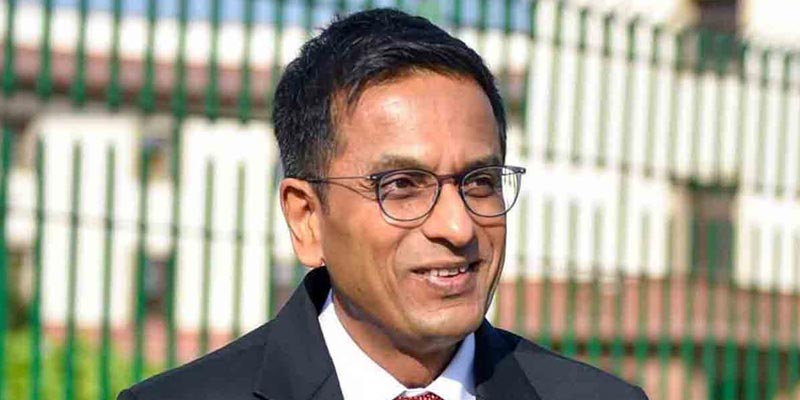- India
- Oct 18
President appoints Justice Chandrachud as 50th Chief Justice of India
• President Droupadi Murmu appointed Justice Dhananjaya Y. Chandrachud as the 50th Chief Justice of India and he will take oath on November 9.
• Union Law Minister Kiren Rijiju announced the appointment of Justice Chandrachud, who will serve as the CJI for two years.
• Justice Chandrachud will succeed Justice U.U. Lalit. The incumbent CJI demits office on November 8 on attaining the age of 65 after a brief tenure of 74 days.
• On October 11, CJI Lalit recommended to the Centre the name of Justice Chandrachud as his successor.
• Justice Chandrachud is the son of former CJI Justice Y.V. Chandrachud. He was the 16th Chief Justice of India and one of the longest serving ones. The former CJI was the head of the judiciary from February 22, 1978 to July 11, 1985.
• Justice Chandrachud will have a tenure of two years as the CJI and is due to retire on November 10, 2024. Supreme Court judges retire at the age of 65.
Process for appointment of CJI
• The Chief Justice of India and the judges of the Supreme Court are appointed by the President under clause (2) of Article 124 of the Constitution.
• According to the Memorandum of Procedure (MoP), which governs the process of appointment of judges in higher judiciary, the outgoing CJI initiates the process of naming the successor after getting a communication from the law ministry.
• The MoP, however, does not specify the time limit for the initiation of the process of recommending the name of the successor CJI.
• Appointment to the office of the CJI should be of the senior-most judge of the Supreme Court considered fit to hold the office.
• The Union minister of law, justice and company affairs would, at the appropriate time, seek the recommendation of the outgoing Chief Justice of India for the appointment of the next Chief Justice of India.
• Whenever there is any doubt about the fitness of the senior-most Judge to hold the office of the Chief Justice of India, consultation with other judges as envisaged in Article 124(2) of the Constitution would be made for appointment of the next Chief Justice of India.
• After receipt of the recommendation of the Chief Justice of India, the Union minister of law, justice and company affairs will put up the recommendation to the Prime Minister who will advise the President in the matter of appointment.
Who is Justice Chandrachud?
• After completing BA with Honours in Economics from St Stephen’s College, New Delhi, Justice Chandrachud did his LLB from Campus Law Centre, Delhi University, and obtained LLM degree and a Doctorate in Juridical Sciences (SJD) from Harvard Law School, USA.
• Justice Chandrachud was designated as a senior advocate by the Bombay High Court in June 1998 and became Additional Solicitor General in the same year till his appointment as a judge.
• He was a judge of the Bombay High Court from March 29, 2000 until his appointment as the Chief Justice of the Allahabad High Court from October 31, 2013.
• Justice Chandrachud was elevated to the Supreme Court on May 13, 2016.
• He has been part of several Constitution benches and landmark verdicts of the top court including on matters relating to the Ayodhya land dispute, right to privacy and adultery.
• Justice Chandrachud was also part of the benches which delivered path-breaking judgements on decriminalising same-sex relations after it partially struck down Section 377 of the IPC, validity of the Aadhaar scheme and Sabarimala issue. Recently, a bench headed by him expanded the scope of the Medical Termination of Pregnancy (MTP) Act and the corresponding rules to include unmarried women for abortion between 20-24 weeks of pregnancy.
Manorama Yearbook app is now available on Google Play Store and iOS App Store


